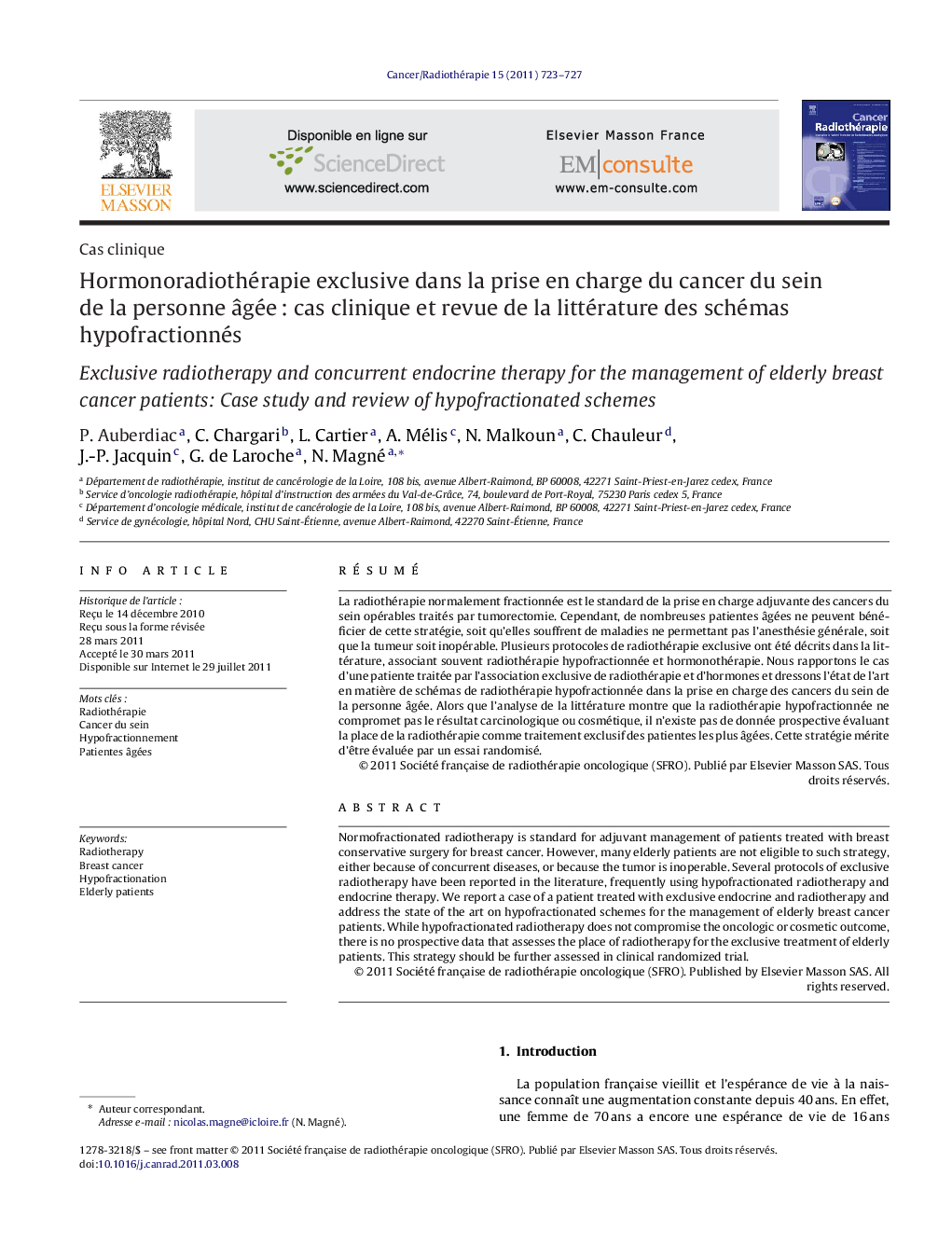| Article ID | Journal | Published Year | Pages | File Type |
|---|---|---|---|---|
| 2118692 | Cancer/Radiothérapie | 2011 | 5 Pages |
RésuméLa radiothérapie normalement fractionnée est le standard de la prise en charge adjuvante des cancers du sein opérables traités par tumorectomie. Cependant, de nombreuses patientes âgées ne peuvent bénéficier de cette stratégie, soit qu’elles souffrent de maladies ne permettant pas l’anesthésie générale, soit que la tumeur soit inopérable. Plusieurs protocoles de radiothérapie exclusive ont été décrits dans la littérature, associant souvent radiothérapie hypofractionnée et hormonothérapie. Nous rapportons le cas d’une patiente traitée par l’association exclusive de radiothérapie et d’hormones et dressons l’état de l’art en matière de schémas de radiothérapie hypofractionnée dans la prise en charge des cancers du sein de la personne âgée. Alors que l’analyse de la littérature montre que la radiothérapie hypofractionnée ne compromet pas le résultat carcinologique ou cosmétique, il n’existe pas de donnée prospective évaluant la place de la radiothérapie comme traitement exclusif des patientes les plus âgées. Cette stratégie mérite d’être évaluée par un essai randomisé.
Normofractionated radiotherapy is standard for adjuvant management of patients treated with breast conservative surgery for breast cancer. However, many elderly patients are not eligible to such strategy, either because of concurrent diseases, or because the tumor is inoperable. Several protocols of exclusive radiotherapy have been reported in the literature, frequently using hypofractionated radiotherapy and endocrine therapy. We report a case of a patient treated with exclusive endocrine and radiotherapy and address the state of the art on hypofractionated schemes for the management of elderly breast cancer patients. While hypofractionated radiotherapy does not compromise the oncologic or cosmetic outcome, there is no prospective data that assesses the place of radiotherapy for the exclusive treatment of elderly patients. This strategy should be further assessed in clinical randomized trial.
